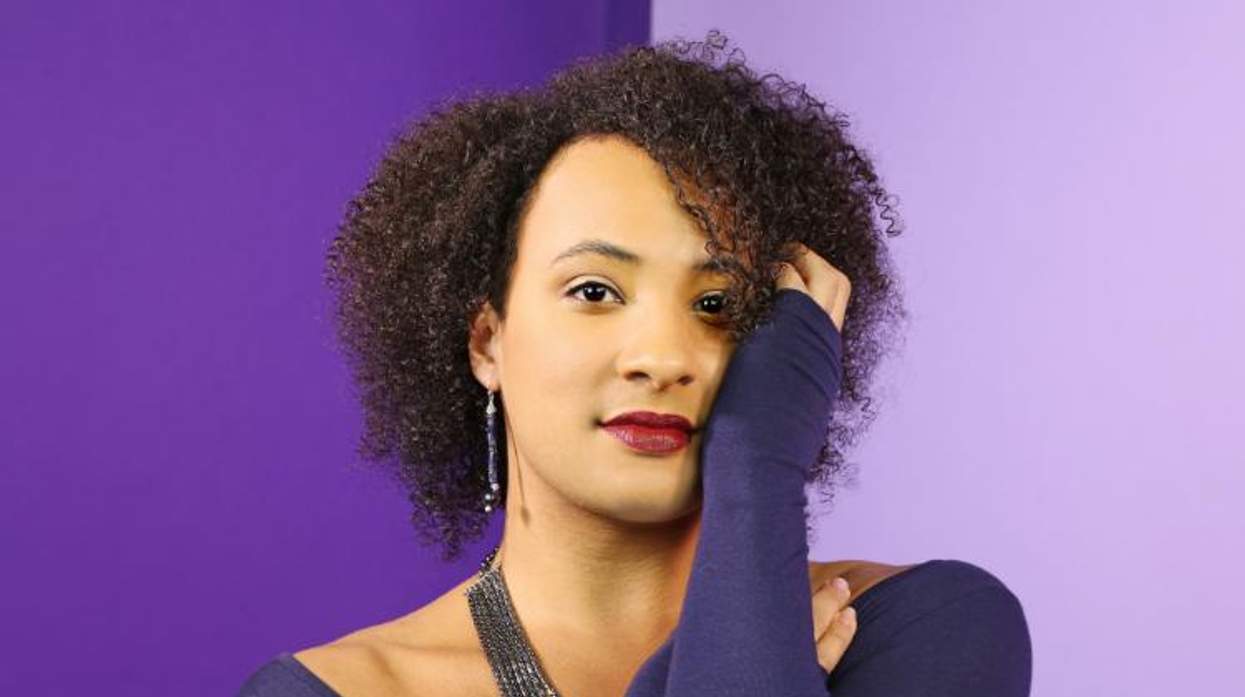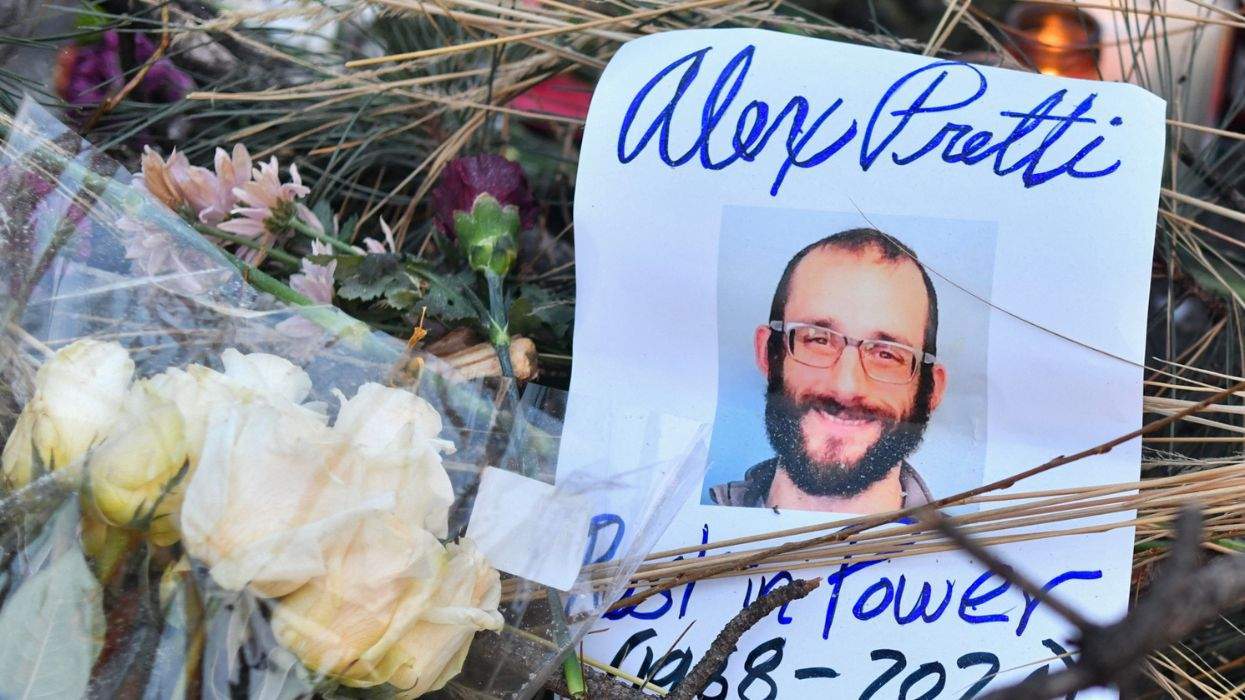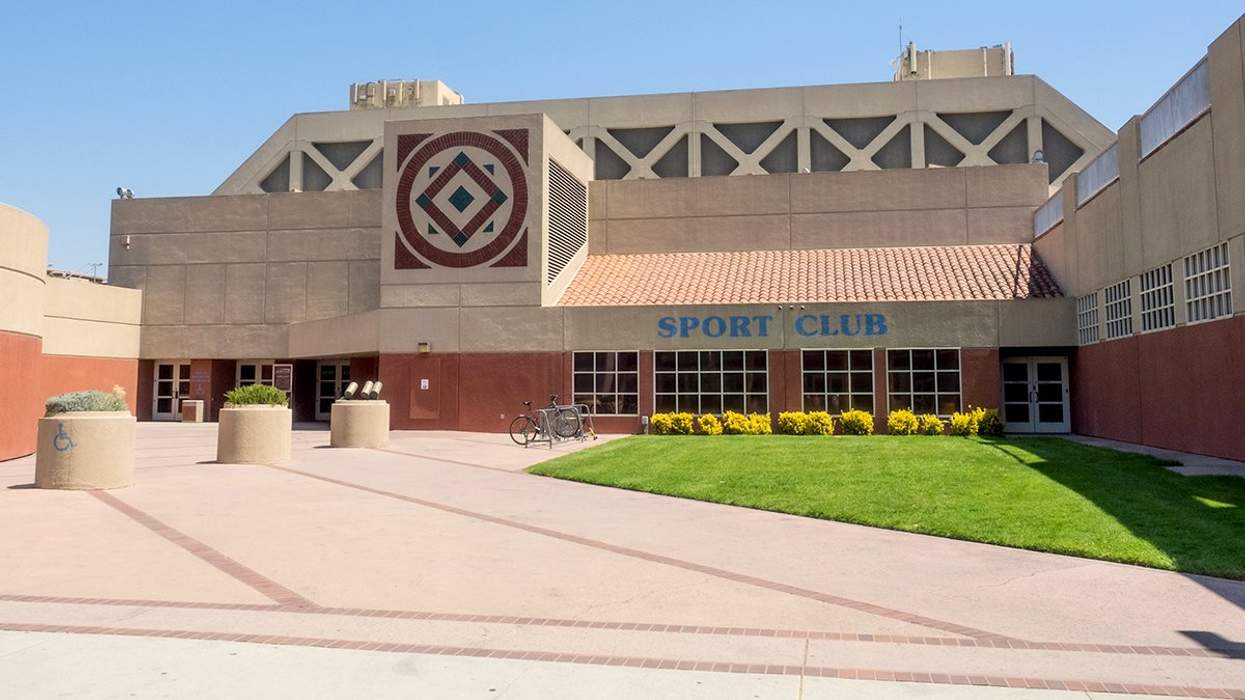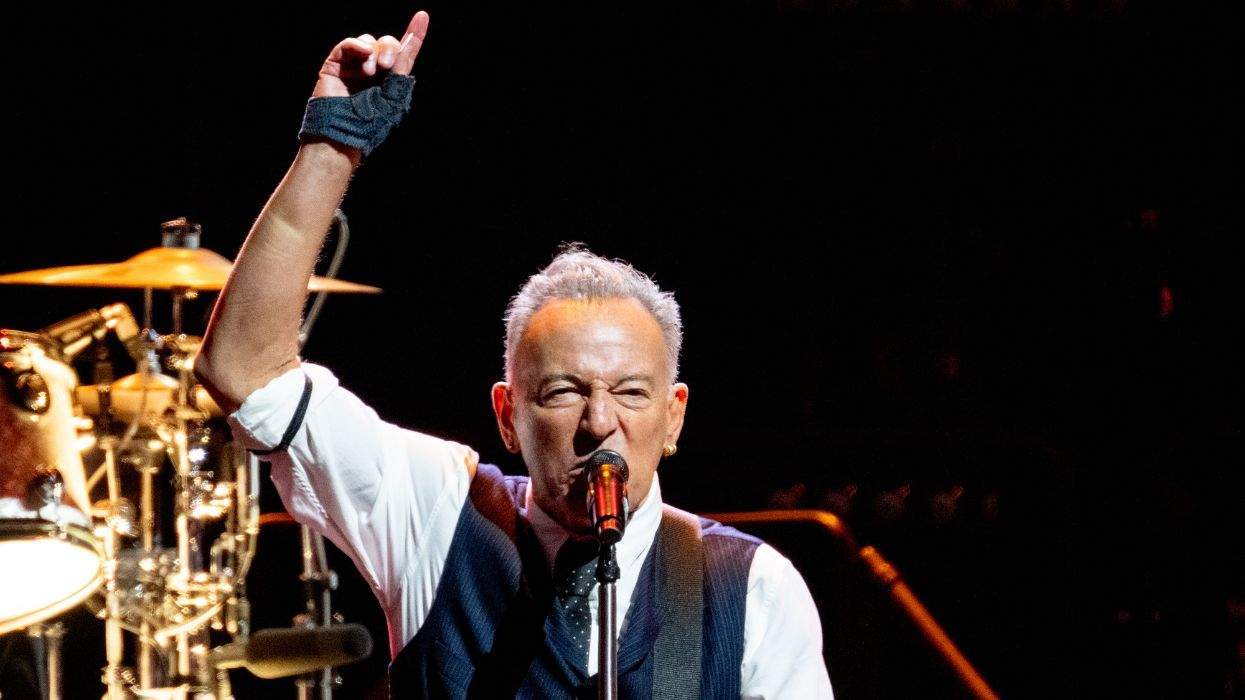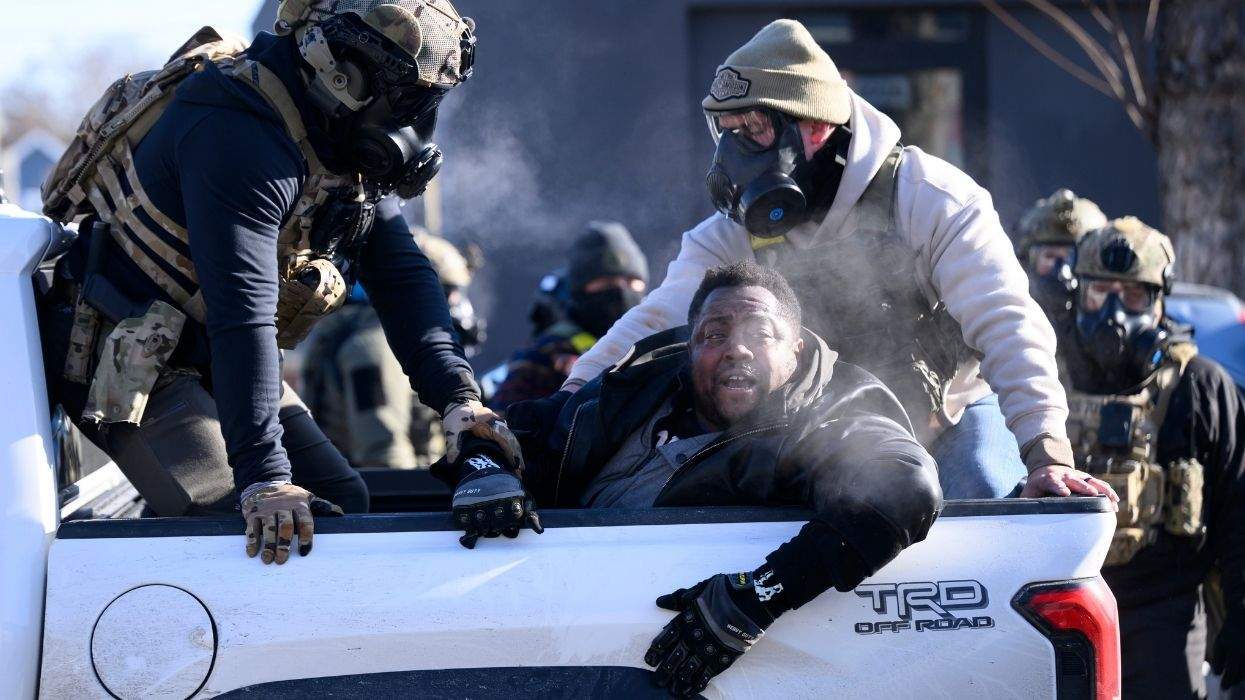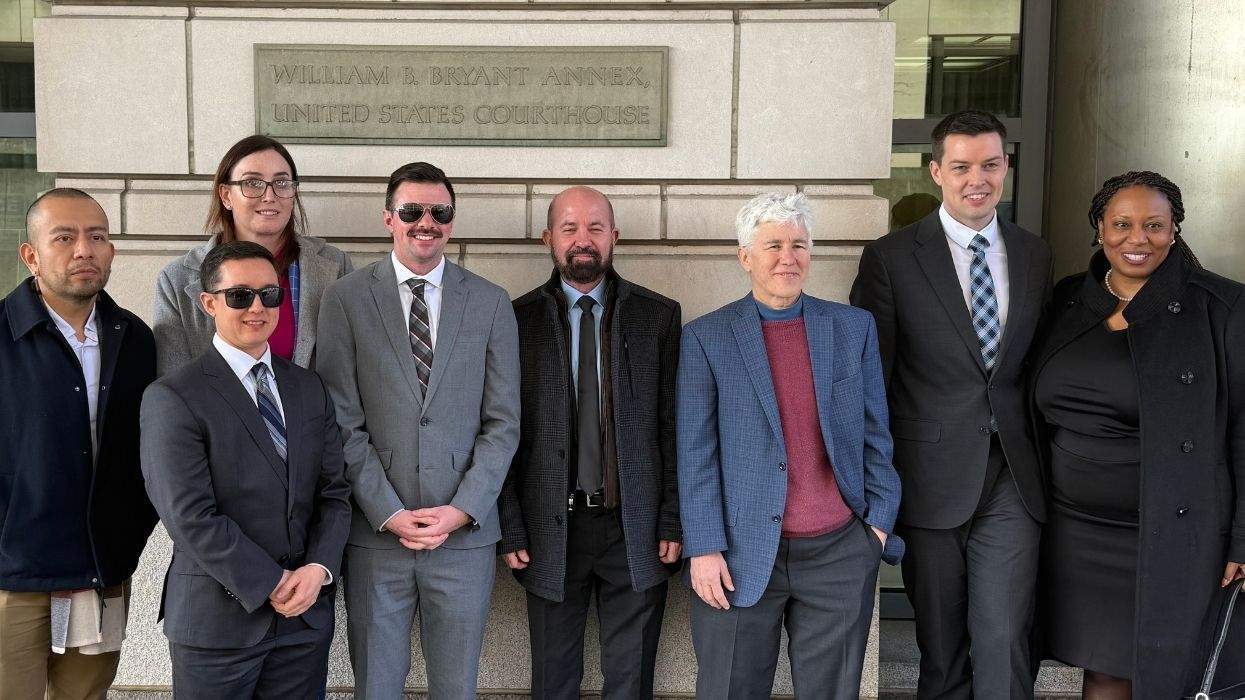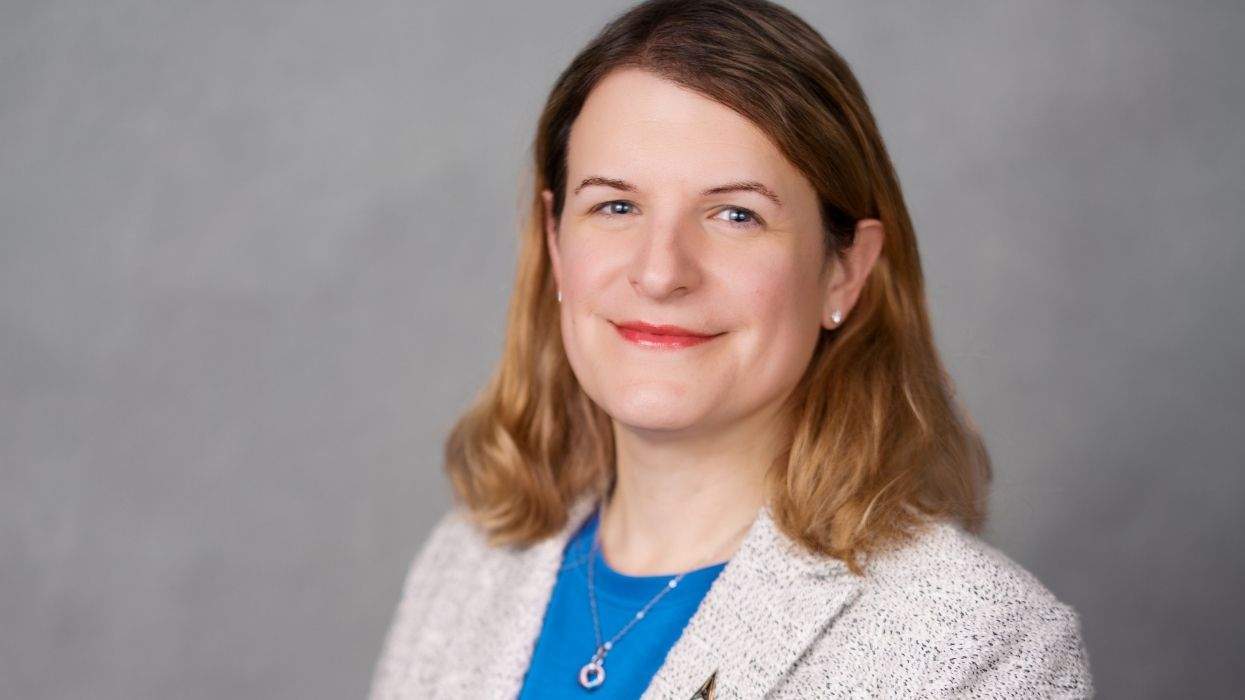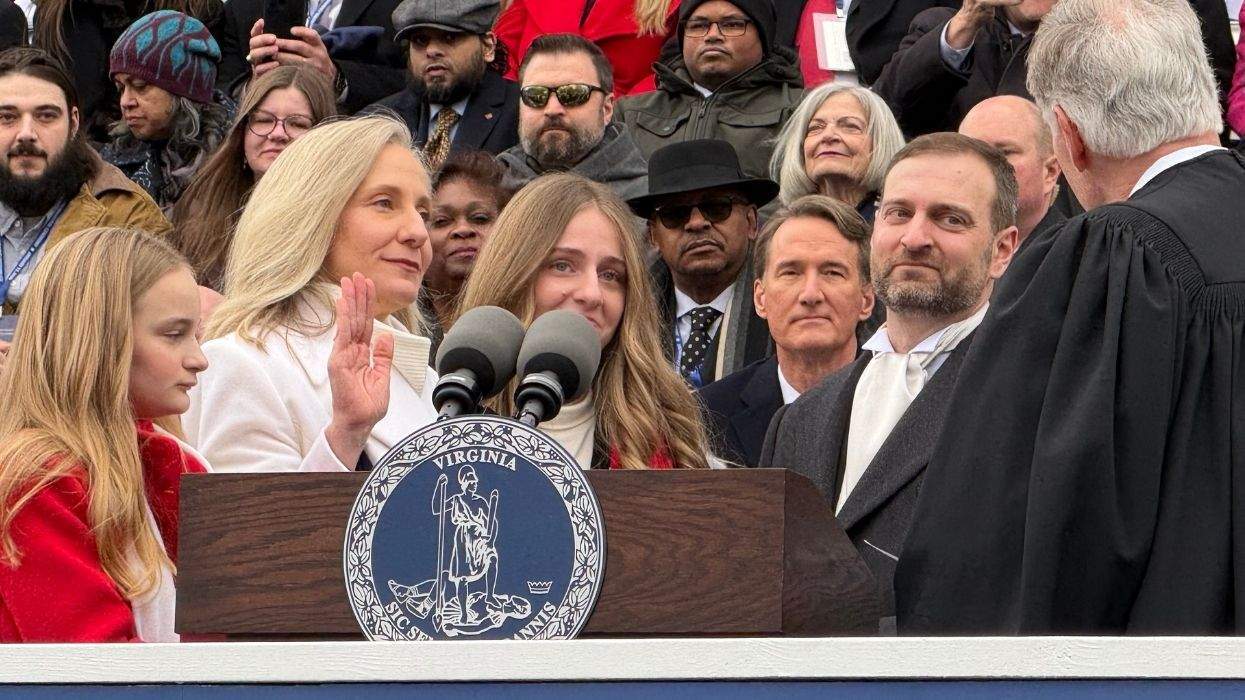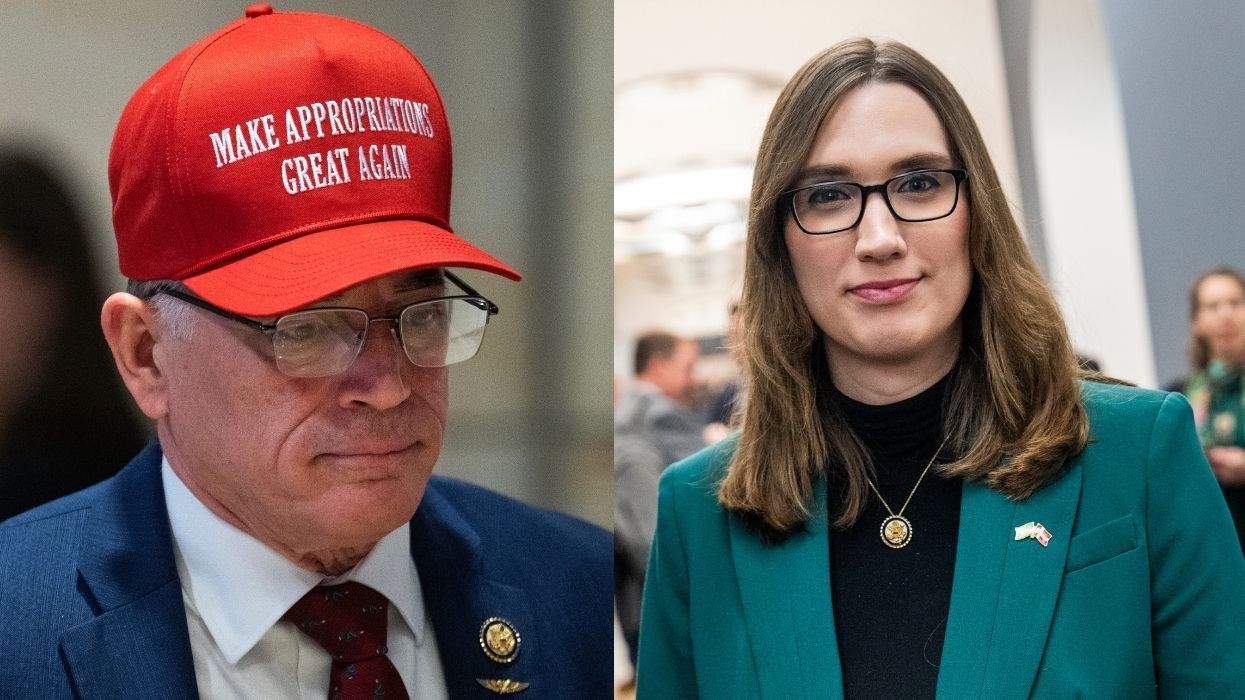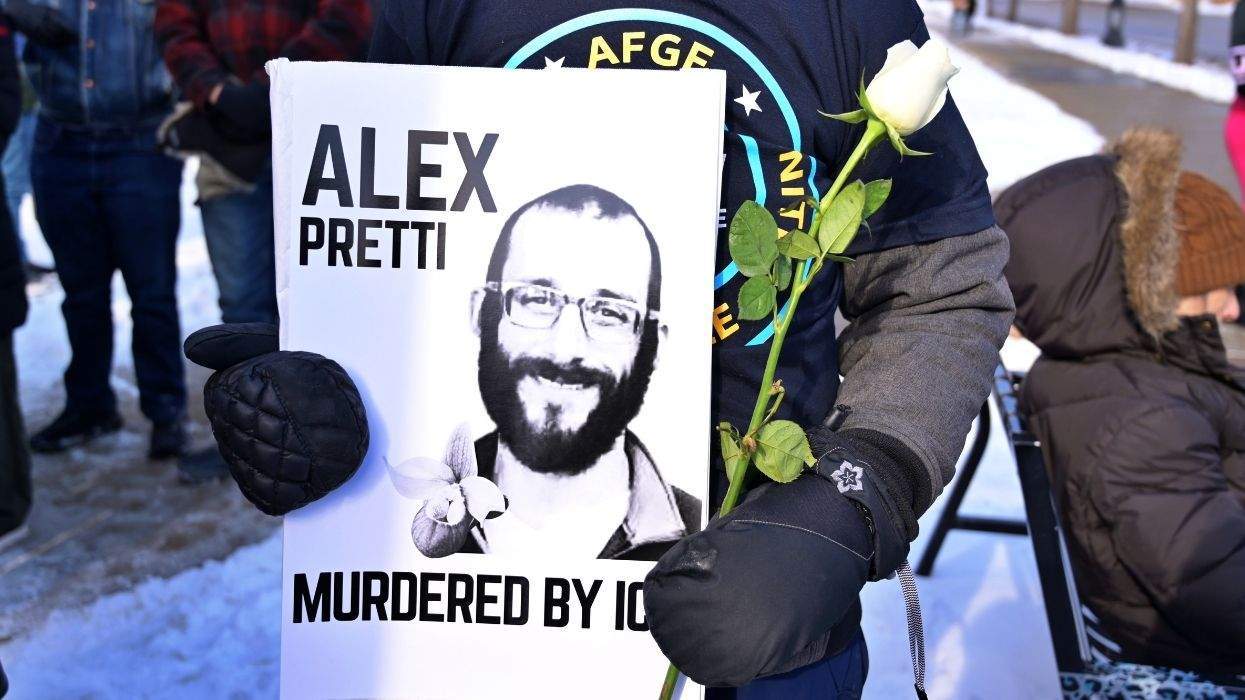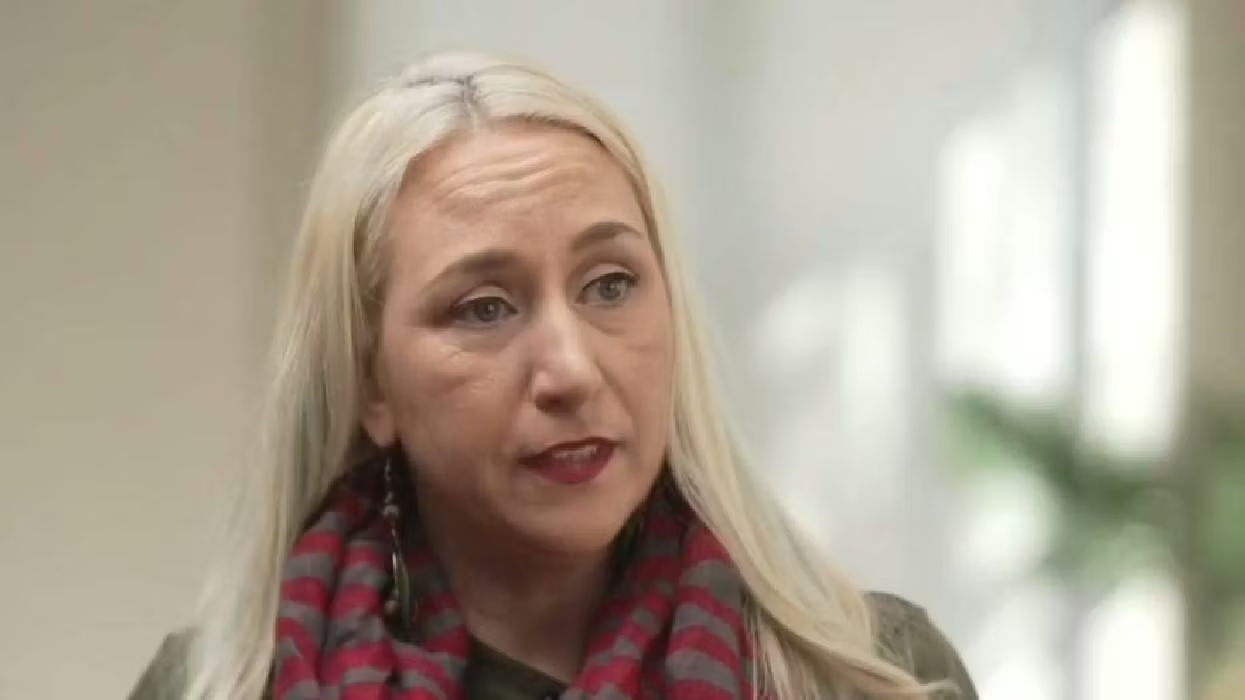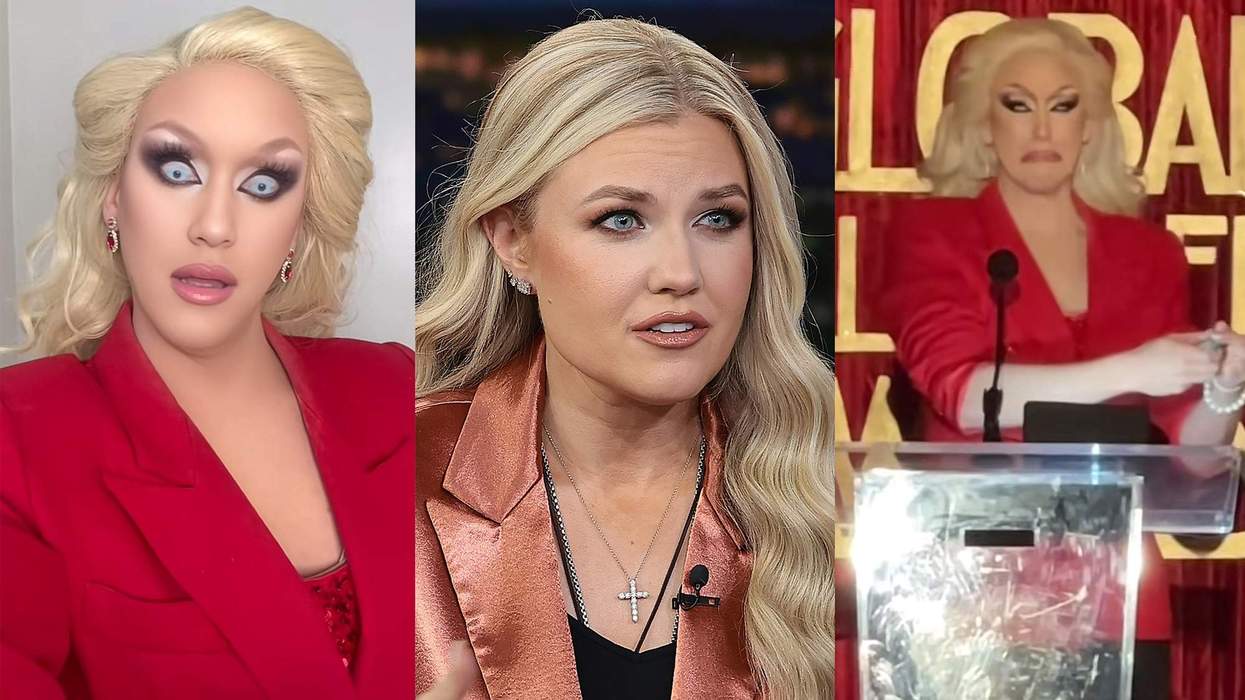This interview is excerpted from the LGBTQ&A podcast.
Ianne Fields Stewart never set out to become an activist. The founder of The Okra Project, which was originally created to send chefs into the homes of Black trans people in New York City to cook meals at no cost and has since expanded to address Black trans people experiencing food insecurity worldwide, says she fell into activism "because I saw a world that was abusing people that looked, loved, and lived like me. And I just couldn't stand by and let it happen any longer."
Facing disproportionately high rights of poverty, unemployment, and homelessness, factors that contribute to food insecurity, a home-cooked, culturally specific meal prepared by a chef from their own community is a luxury many Black trans and nonbinary people can't enjoy. It is this idea, making luxury accessible to the most marginalized, that Stewart is dedicated to disrupting.
Ianne Fields Stewart discusses her work on this week's episode of LGBTQ&A with Scott Shigeoka, a storyteller and entrepreneur whose work focuses on bridging social and political divides in the U.S.
Read highlights from their conversation below and click here to listen to the full conversation on LGBTQ&A.
Scott Shigeoka: Why do you think there's been such a resounding amount of support for The Okra Project? What's your analysis on that?
Ianne Fields Stewart: Part of it is the idea of taking luxury and making it something that's accessible to the most marginalized people. It's something that I personally am very committed to, to interrupting this idea that luxury should be exclusive and making luxury something that is available to all people. And most importantly, to the most marginalized in our community.
For Black people, in particular, the kitchen is such a place of family lineage. It's a place of community. It's a place of love. Daily life occurs in the kitchen. And so to have that kitchen be filled with someone who looks, loves, and lives like you, is a luxury and a joy. You're not just having this person who comes in and cooks for you and then leaves. You're creating an experience of community. It says that you are special and you are worthy of receiving this meal.
I think for a community of people who for so long have had to make everything out of nothing, that's such a gift and such a beautiful thing to have someone say, "I will do it for you because you're worth it."
SS: Why have we as a community and a country not seen the value that trans and queer Black folks are making in our progressive movements?
IFS: It's something I'm asked a lot of, "Why do people ignore this history? Why do people erase trans people from dominant conversations about how we think about pride and culture and society?"
And my reaction is always the same. I am a Black, queer, nonbinary, lesbian woman. I did not create transphobia, therefore, I cannot be responsible for the undoing of it. I've only ever seen the divinity and the beauty and the greatness in Black trans people. And I am proud and honored and humbled to be a part of such a beautiful and wondrous community. Why anyone would have beef with my people is truly baffling to me. It is that confusion that fuels much of my rage, because it is so unjustified, the hatred against us.
I think that question is absolutely something more cis people should be answering for themselves. And I hope that more cis people will begin to question themselves and will publicly begin to provide answers. Why has transphobia been allowed to flourish for so long? Why have so many cis people been willing to allow our murders and our beatings and brutalizing and the continued disenfranchisement of my people? Why have they allowed that to continue? I think it's a worthy question for cis people to consider and to answer and be held accountable to.
SS: What can be done to support trans or Black-led organizations? Is it about opening up our wallets? Is it about enlisting others? Is it about education?
IFS: If you're open to it, I'm going to flip that question right back to you and ask what you think can be done. At The Okra Project, we always accepted donations and have been flourishing as a result of them. But as someone who has the privilege to sit at tables and banquet halls of privilege -- by which, I mean being able to be a cis person who exists in this world and can occupy that space -- what do you feel can be done?
SS: I donated to The Okra Project this week and I want to continue to find other ways to support these kinds of organizations. I think about how we gather as a community. It could be a small group of five of us and can we read a book about Barbara Smith. Can we read or watch a film about Bayard Rustin? Can we learn about Marsha P. Johnson and the history of Pride? And go deeper into S.T.A.R. and deeper into the organizations that they've founded instead of ending at a surface level.
IFS: When I hear what you're describing, my organizing brain jumps into then asking, "What's the next step after that? Once we've educated ourselves." Because at the end of the day, all you really need to know is that people are dying. Absolutely know the history and know we're where we all come from. But first, let's know that people are dying. And if you are to know that people are dying and if you wish to be an ally, or as I prefer, an accomplice, what do you feel like you as a cis person would need in order to create action? What spaces are you occupying that you can have influence in? What access do you have? How far are you willing to go to ensure that we live? That for me is the next question to start asking ourselves because people are dying.
These are the kinds of things that I think more cis people need to be asking, especially when they ask trans people to show up and be in spaces where we are essentially asked questions like, "Oh, well, why should people care?" It's a very exhausting experience to have to explain to people over and over again, why it is insulting, demeaning, and painful to have to beg for scraps that come from a meal that cis people have enjoyed for so long.
SS: When we talk about action, when we think about something like defunding the police, for instance, the impact that it has on mass incarceration, which is something my dad was impacted by directly in our family, I think about how we change those mindsets and actually help people understand that there are many alternatives that we can pull from other countries, other cultures, that exist, that don't rely on armed people who are militarized coming in and trying to resolve issues that they're not trained for.
IFS: And isn't that interesting in the span of just asking yourself two questions, you were able to move from a place of having a group of five people who are reading books together, to going into communities and working with small businesses to understand their specific needs in an effort to abolish the police, right. What a transformative thing to happen in just two questions. And so I hope that many more cis people will use that kind of model for themselves and say, "Okay, I know what I can educate myself on, but what can I actually do?" And you've already provided them with abolitionist politics.
Activism is something I do because it's the rent I need to pay to live on this earth, as Audre Lorde said. I take that responsibility very seriously, but activism is something that I fell into because I saw a world that was abusing people that looked, loved, and lived like me. And I just couldn't stand by and let it happen any longer. I asked myself the same questions that I was asking you in this interview. I asked myself, "What could I do?" And so I went and did it. To be perfectly frank with you, if I could just wake up every day and be pretty and wear beautiful outfits and have photos taken of me and be an actress, if all I had to do every day was just go to a theatre, I'm trained for that. I've been training my entire life to go to a theater and do an eight-show week. I have been training my whole life to be ready to talk to press and be on red carpets. I've trained my whole life. I've always wanted to be an actress. And I see great value in acting and in storytelling.
Activism and social justice is not easy work and it's not necessarily something that I always wake up wanting to do. It's something I wake up having to do because I can't live in a world where Iyanna Dior, Tony McDade, Nina Pop, Muhlaysia Booker, Diamond Stephens are brutalized and/or murdered, where their murders and assailants go without accountability.
SS: What's your analysis on this moment in time? What does it mean to others? And what's the opportunity here if there is one?
IFS: I think that the more pessimistic side of me believes that some people are coming out in the streets so they can be outside. And at the end of the day, regardless of intentions and things like that because we can never truly know, I am provided with a sense of hope that something is going to shift because it's just lasted so long and surely people are going to continue to pay attention.
There's a bittersweetness to it because the sweetness is that encouraging moment of seeing so many people come out and seeing so much support, but the bitterness is also that many organizers and activists such as myself, we have been doing this work for so long and for many of us, we've kind of resigned ourselves to the fact that we are building towards a future that we'll just never see.
There is hope, absolutely, and there is also that recognition that the work needs to be done first. So if you're here, fantastic. If you just got here, great, but most importantly, are you going to stay? And if you do stay, what are you going to do now that you are here?
Click here to listen to the full interview with Ianne Fields Stewart and Scott Shigeoka.
LGBTQ&A is produced by The Advocate magazine, in partnership with GLAAD.
Photography by Abdool Corlette
